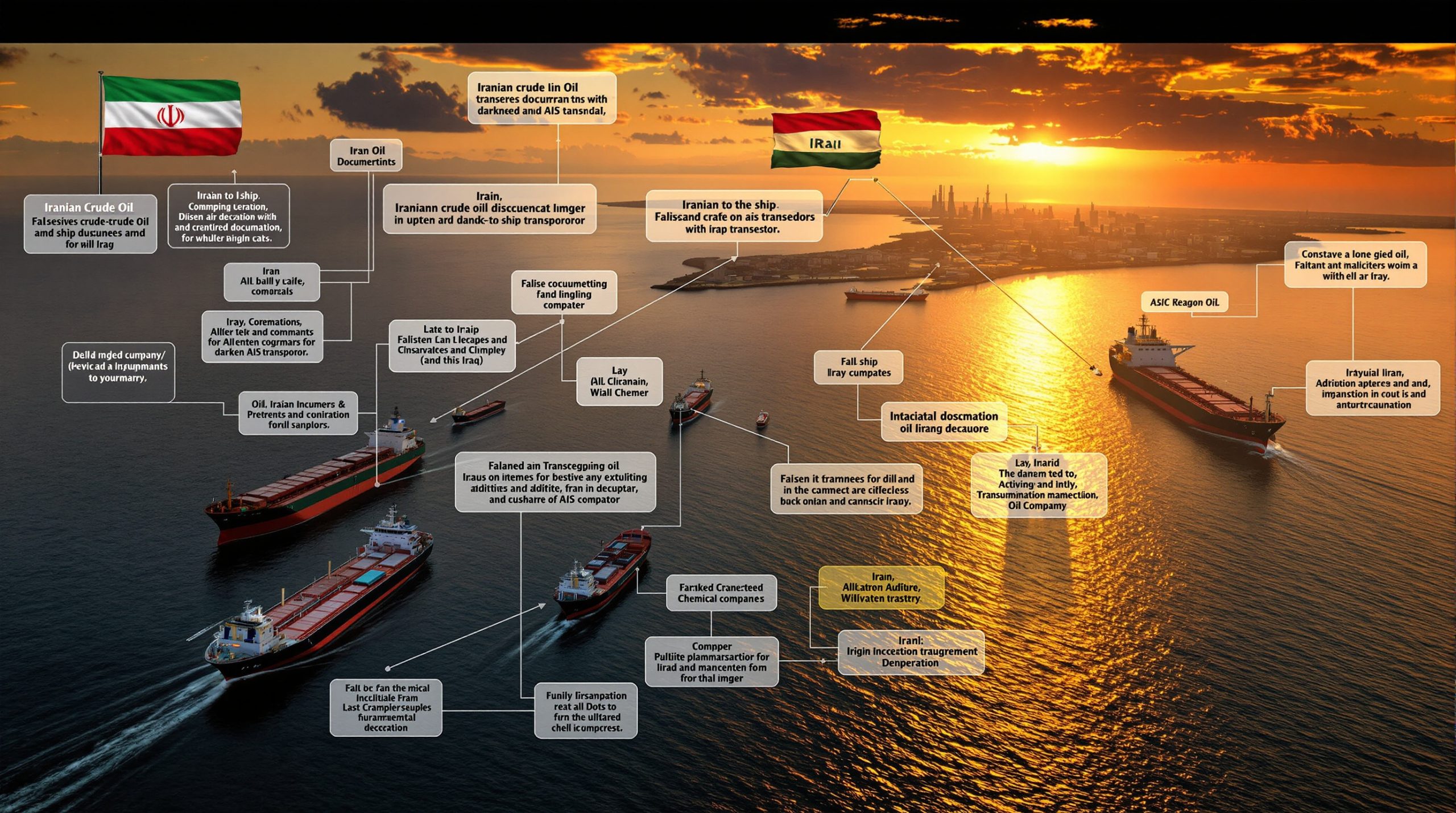What is the Peabody-Anglo American Deal?
Peabody Energy's agreement to acquire Anglo American's Australian steelmaking coal assets represents one of the largest coal sector transactions in recent years. Announced in late 2024, this $3.78 billion cash acquisition strategically positions Peabody to strengthen its foothold in the metallurgical coal market while allowing Anglo American to pivot toward other minerals in its portfolio. Amidst ongoing global coal challenges, this deal marks a significant shift in the industry landscape.
The Original Agreement
The $3.78 billion deal encompasses several steelmaking coal mines located in Queensland's resource-rich Bowen Basin. This transaction, initially expected to close in mid-2025 pending regulatory approvals, would see Peabody take ownership of assets that form a crucial part of the global steelmaking coal supply chain.
Central to the acquisition package is the Moranbah North mine, an underground longwall operation that has been producing high-quality metallurgical coal since 1998. With approximate annual production of 4.5 million metric tons, Moranbah North represents about 30% of the total production capacity of the assets being acquired.
The deal also includes other significant operations such as the Grosvenor mine (with annual capacity of approximately 7 million metric tons) and the Dawson Complex (4.5 million metric tons), further enhancing Peabody's metallurgical coal portfolio.
Strategic Importance
This acquisition marks a decisive shift in strategy for Peabody Energy, which has historically maintained a more balanced portfolio between thermal coal (used for electricity generation) and metallurgical coal (used in steelmaking). Industry analysts note that metallurgical coal typically commands a significant premium over thermal coal – approximately $250 per ton versus $120 per ton as of Q1 2025 – making it an attractive segment for mining investment strategies.
"This acquisition positions Peabody as a global leader in metallurgical coal, which remains critical for steel production even amid broader decarbonization trends," noted a mining analyst from CRU Group in March 2025.
For Anglo American, the divestiture aligns with its strategic reorientation toward what it considers future-facing commodities like copper and premium iron ore products. The company has been gradually reducing its exposure to coal assets, with this deal representing its most significant exit from the sector.
The timing of the deal is particularly notable as it occurs against a backdrop of industry consolidation, with several major mining companies reassessing their coal portfolios in response to environmental pressures, changing investor sentiment, and evolving market dynamics.
Why is the Deal Being Reviewed?
The acquisition's trajectory was unexpectedly complicated in early April 2025 when an incident at the Moranbah North mine – a cornerstone asset in the acquisition – raised questions about the deal's valuation and timeline.
The Moranbah North Mine Incident
On April 2, 2025, Anglo American reported an ignition event at its Moranbah North underground coal operation. While no injuries were reported, the incident triggered an immediate suspension of mining activities and initiated a comprehensive safety investigation as required by Queensland's Coal Mining Safety and Health Act 1999.
Ignition events in underground coal mines typically involve the unplanned combustion of methane gas or coal dust, which can pose serious safety risks. Modern mining operations maintain sophisticated gas monitoring systems that automatically trigger shutdowns when methane concentrations exceed 5% in longwall mining zones.
Following the incident, Anglo American announced it expected the mine to resume operations by May 7, 2025, indicating a five-week closure period. Industry experts estimate that such closures result in approximately $12 million per week in revenue losses, creating significant financial implications for both the current owner and the prospective buyer.
"Ignition events of this nature typically cost between $50 million and $100 million in remediation and potential regulatory penalties," explained a safety director from the Mine Safety Institute. "The financial impact extends beyond immediate production losses to include comprehensive safety reviews and potential equipment upgrades."
Peabody's Response
Peabody Energy's reaction to the incident was measured but significant. In a statement released on April 8, 2025, the company announced it was "reviewing options" related to the acquisition while maintaining ongoing dialogue with Anglo American to fully understand the incident's impacts.
The company emphasized that it would "preserve all rights and protections under its purchase agreements," suggesting it might invoke clauses related to material changes in asset condition or valuation. This language indicates Peabody is considering its contractual options rather than abandoning the transaction entirely.
This development bears some resemblance to Peabody's 2018 acquisition of the Shoal Creek mine, where the discovery of groundwater issues during the due diligence period led to a renegotiation that ultimately reduced the purchase price by approximately 15%.
Mining industry analysts note that Peabody's careful wording likely reflects standard material adverse change (MAC) clauses in the purchase agreement, which typically provide protection for buyers when significant negative events occur between signing and closing.
What Are the Potential Outcomes?
The Moranbah North incident has created uncertainty around what was previously considered a straightforward transaction, opening several possible paths forward for both companies.
Possible Scenarios
The most straightforward outcome would be proceeding with the original deal as planned, with Anglo American successfully addressing the ignition event and returning the mine to full production before the transaction closes. This scenario becomes more likely if the incident is deemed minor with no lasting operational impacts.
Another possibility is a renegotiation of the $3.78 billion purchase price. Material Adverse Change clauses typically come into effect when an event impacts asset valuation by more than 10%. Financial analysts suggest Peabody could reasonably seek a $300-500 million reduction if Moranbah's downtime extends beyond the projected eight weeks or if the incident results in lasting production constraints.
"Peabody has legitimate grounds to seek price adjustments if remediation extends beyond Anglo's current timeline," noted a Bloomberg Intelligence analyst familiar with mining sector M&A. "The question will center on whether this constitutes a material change to the asset's long-term value."
Alternatively, Peabody might seek compensation for damages or production losses rather than a reduced purchase price. This could take the form of financial consideration separate from the main transaction or adjustment to deal terms. Sources close to the negotiations suggest Anglo American might offer equity stakes in other assets, such as the Grosvenor mine, to offset potential losses.
More drastically, either party could potentially seek to modify the scope of assets included in the transaction, perhaps removing Moranbah North or substituting another asset. While less likely, this scenario becomes more probable if the mine's recovery is substantially delayed.
The companies might also agree to extend the closing timeline beyond mid-2025 to allow for complete remediation and assessment of Moranbah North. This would provide additional certainty for Peabody while giving Anglo American time to restore the asset to full operational status.
The most extreme outcome – termination of the agreement based on material adverse change clauses – remains possible but unlikely given the strategic importance of the deal to both parties. Standard termination fees in mining sector M&A typically range from 3-5% of deal value, potentially costing the terminating party $113-189 million.
Financial Implications
The financial impact of the Moranbah North incident extends beyond immediate production losses. Discounted Cash Flow (DCF) valuation models for the mine would need adjustment to account for the projected five-week closure, potentially reducing Net Present Value by 8-12% according to mining financial analysts.
The costs associated with mine recovery and restoration, while significant, would likely be borne by Anglo American as the current operator. However, these expenses could become a negotiating point if they impact the mine's long-term productivity or safety profile.
Production losses during Moranbah North's closure represent approximately 400,000 tons of steelmaking coal at current production rates. With metallurgical coal trading at approximately $318 per ton (an 8% increase following the incident announcement), the direct revenue impact approaches $127 million.
Long-term productivity assessments following the incident will be crucial to any renegotiation. If the event requires changes to mining methods or additional underground mine safety measures that permanently reduce output or increase operating costs, the valuation impact could be substantially greater than the temporary closure suggests.
What Does This Mean for the Coal Industry?
The developments surrounding this major acquisition have implications beyond the two companies directly involved, potentially influencing broader market dynamics and industry practices.
Market Impact
The uncertainty surrounding the Peabody-Anglo American deal has already created ripples in metallurgical coal markets. Spot prices increased by 8% to $318 per ton in the week following the incident announcement, reflecting concerns about potential supply constraints if Moranbah North's return to production is delayed.
With global steel production reaching approximately 1.8 billion tons in 2024 and requiring about 1.1 billion tons of metallurgical coal, any significant disruption to major supply sources can have outsized market impacts. Australian premium hard coking coal, the grade produced at Moranbah North, is particularly valued for its quality characteristics and limited substitutability in certain steelmaking processes.
Investor reactions to large-scale coal asset transactions have become increasingly nuanced in recent years. "Investors will scrutinize ESG risks in coal M&A more closely following incidents like this," noted a recent BlackRock Sustainability Report. This heightened scrutiny could affect valuation multiples for similar assets going forward.
The situation also highlights implications for Anglo American's strategic pivot away from coal. The company has been steadily reducing its coal exposure to focus on copper, platinum group metals, and premium iron ore – commodities it believes are better positioned for the energy transition. Any complications in executing this divestiture could delay its broader strategic realignment.
Industry Trends
The Peabody-Anglo American transaction exemplifies the ongoing consolidation in the coal sector amid energy transition pressures. As public market investors increasingly shy away from coal exposure, industry consolidation has accelerated, with assets concentrated among a smaller pool of operators with specialized expertise and private capital backing.
The deal's focus on high-quality metallurgical coal versus thermal coal reflects a broader industry trend. While thermal coal faces long-term demand challenges from renewable energy growth, metallurgical coal benefits from limited viable alternatives in steel production, with approximately 60% of global steelmakers targeting carbon-neutral operations by 2040 but still requiring high-quality coking coal in the interim.
Safety considerations in underground mining operations have taken center stage following the Moranbah North incident. Industry observers note increased scrutiny from both regulators and investors regarding operational risk management in coal mining, particularly for underground operations with inherent methane management challenges.
Regulatory and environmental factors affecting coal asset valuations continue to evolve. Carbon pricing mechanisms, increasingly stringent emissions standards, and changing investor sentiment all contribute to complex valuation considerations that weren't as prominent in previous coal industry consolidation waves. According to recent mining industry predictions, this trend is likely to accelerate in coming years.
The Peabody-Anglo American deal also highlights the industry's ongoing struggle to balance traditional business models with increasing pressure for green mining transformation. As noted in a recent industry report, Anglo American's exit from coal represents part of a larger strategic shift toward more sustainable mining practices.
FAQs About the Peabody-Anglo American Deal
What caused the incident at Moranbah North mine?
While detailed investigation results have not been published, the ignition event at Moranbah North likely involved methane gas, which occurs naturally in coal seams. Underground longwall mining operations utilize sophisticated gas monitoring systems that continuously measure methane levels throughout the mine. When concentrations approach dangerous levels (typically 5% in air), safety systems are designed to automatically shut down electrical equipment to prevent ignition sources. The incident suggests a potential failure in either detection or mitigation systems.
How significant is Moranbah North to the overall deal?
Moranbah North represents approximately 30% of the projected 2025 output from the assets being acquired, making it a cornerstone of the transaction. Beyond production volumes, the mine produces premium hard coking coal with quality characteristics particularly valued by steelmakers, commanding top-tier pricing in the market. Any long-term impacts to its production capacity would have material implications for the overall value proposition of the acquisition.
Could Peabody walk away from the deal entirely?
While contractually possible through Material Adverse Change clauses, a complete withdrawal appears unlikely given the strategic importance of the acquisition to Peabody's metallurgical coal growth strategy. The company has only stated it is "reviewing options" and "preserving rights" under the agreement, suggesting a preference for adjustment rather than abandonment. Industry precedent in similar situations typically favors renegotiation over termination, particularly in transactions of this magnitude.
When will a decision be made about the deal's future?
No specific timeline has been announced, but with Anglo American expecting to reopen the mine in May 2025 and the deal originally set to close in mid-2025, a resolution will likely emerge by early summer. The companies will need to reach alignment before entering the final regulatory approval phase, suggesting internal decisions may come by June 2025. The outcome will depend largely on Moranbah North's successful return to production and any lasting impacts identified during the safety investigation.
Want to Capitalise on the Next Major Mineral Discovery?
Stay ahead of the market with Discovery Alert's proprietary Discovery IQ model, which instantly transforms complex mineral announcements into actionable investment insights for both short-term traders and long-term investors. Visit our discoveries page to understand why major mineral discoveries can lead to significant market returns and begin your 30-day free trial today.




